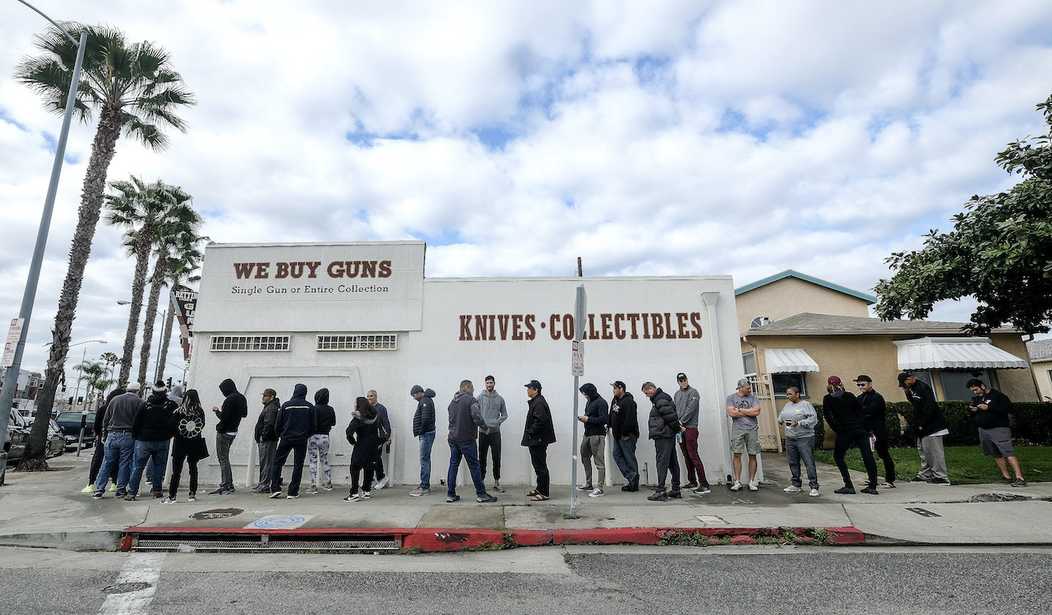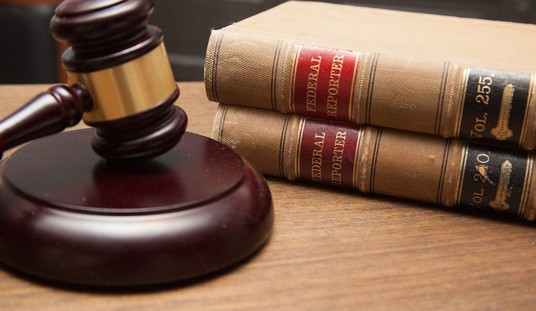While we’ve been reporting on the record-high number of gun sales for months now, many news outlets are just now discovering that millions of Americans have flocked to gun stores since March in order to pick up a firearm for the very first time. Suprisingly, given the anti-gun bias inherent in the press, the recent coverage has been fairly balanced in its reporting.
Take Reuters, for example, which published a story on Thursday about “election fears driving gun sales.”
Andreyah Garland, a 44-year-old single mother of three daughters, bought a shotgun in May for protection in the quaint middle-class town of Fishkill, New York. She joined a new and fast-growing local gun club to learn how to shoot.
She has since applied for a pistol permit and constantly hunts for increasingly scarce ammunition — making three trips weekly to a local Walmart. “They’re always out,” she said.
Like legions of other first-time buyers who are contributing to record sales for the U.S. gun industry this year, Garland’s decision to take up arms is driven in part by disturbing news about the coronavirus pandemic, social unrest over police killings of Black people and a potentially contested election that many fear could spark violence.
“With everything going on around us,” she said, “you see a need.”
Ordinarily, a news outlet like Reuters would counter Garland’s quote about seeing a need to own a gun with a comment by a gun control advocate claiming that “actually, owning a gun makes you a bazillion times more likely to be the victim” of gun violence. Not this time. Instead, Reuters noted that there are plenty of new gun owners like Garland out there, including quite a few who don’t fit the stereotype of the white, middle-aged guy with a beard and a ballcap.
Among the first-timers is Bailey Beeken, 61, who lives in Riverdale, New York, and describes herself as a white, politically liberal, middle-class woman. She started taking shooting lessons this summer, she said, because “whichever way this election goes, it could get really scary, and it could get bloody.”
With the pandemic pitting mask-wearers against mask protesters, and police-brutality protests sparking violent street clashes, “I just feel like it’s a powder keg,” she said. “I want to be armed and dangerous.”
In the Los Angeles Times on Thursday, sociologist Jennifer Carlson also writes about the millions of new gun owners and what’s driving them to exercise their Second Amendment rights for the first time. It’s not panic buying that we’re seeing, at least not now, writes Carlson. Gun dealers she spoke with said that was the case back in March when lockdowns were first put into effect around the country, but over the past few months most of the purchasers have been concerned over the increasing chaos in our country. They’re not necessarily predicting societal collapse or a civil war, but they’re uncertain what the future holds.
“I had a kid walk into my store with a Bernie Sanders shirt on!” a seller in the greater Miami area told me. An Arizona seller told me of an elderly gay man who came into his store and silently stared at a gun for 10 minutes before finally mustering the courage to make the purchase.
Many of these buyers didn’t know much about features, models or brands (if they mentioned a brand, it was Glock — perhaps because Glocks figure in movie shoot-out scenes and pop songs). They were trying to buy the sense of security associated with a gun.
“When you have uncertainty, you have to have a guarantee, and the only guarantee in this country is the right to protect yourself,” a central Florida gun seller explained.
Carlson tries to conclude her piece on an optimistic note, but I’m not sure she manages to pull it off.
The point is, 2020 isn’t everyday life. Whether people are suspending their liberal politics to purchase a gun or doubling down on their long-standing embrace of weapons, they are converging on the firearm as a means of control, power and — perhaps — agency in a time of extended turmoil.
One takeaway from my interviews is that the surge in gun sales marked an extraordinarily swift change of perspectives. Americans seemed to go from secure to frightened quickly, and deeply. That shift from normal life to abnormal, the sense of inevitable chaos the sellers spoke of, is the overwhelming message behind millions of new guns in our hands and our homes.
I disagree that 2020 isn’t everyday life. Since at least March, 2020 has been our everyday life, and I don’t know too many people who think that life is suddenly going to return to the way it was once the elections are over or we ring in 2021 from our socially-distanced New Year’s Eve Zoom parties. Carlson spoke to several gun shop owners who said they were concerned about the civil unrest in our country getting worse no matter who wins the November elections, and I can’t say that I blame them.
I’m not panicking over that possibility, and I’m certainly not excited about it. I am, however, at least somewhat resigned to the idea that the deep political divides are only going to get worse after the elections. If Democrats are able to retake both the Senate and the White House, I worry that their base will demand the end of the judicial filibuster and the packing of the Supreme Court. I’m concerned that Democrats will claim that their election victories, no matter how narrow, are mandates for sweeping gun control laws and other policies that would fundamentally transform this country.
That won’t go over well in many parts of the country, but the same holds true if Donald Trump wins a second-term. And then, of course, there’s the possibility that we won’t know who won the election for weeks or months after as the courts try to address multiple state and federal lawsuits. That would likely fuel both unrest and uncertainty in the short term, and would also ensure that the millions of Americans who’ve already purchased a firearm in recent months would be joined by millions more new gun owners from all walks of life and across the political spectrum who suddenly feel a need to exercise their own right to keep and bear arms to protect themselves amidst the chaos.









Join the conversation as a VIP Member